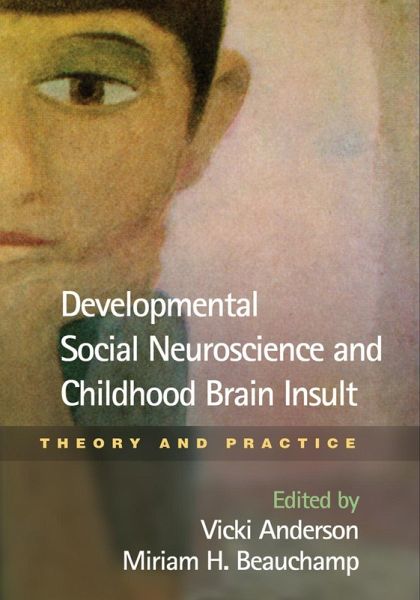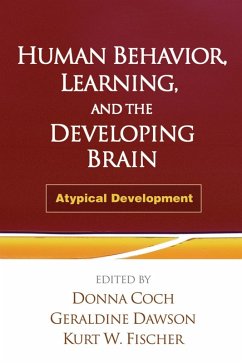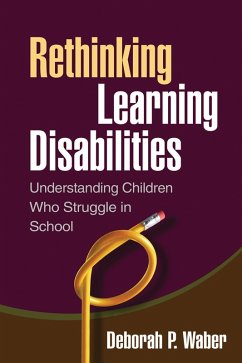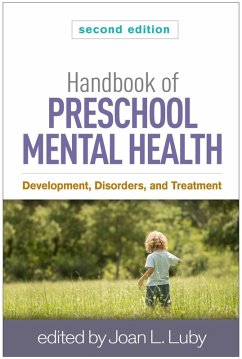
Developmental Social Neuroscience and Childhood Brain Insult (eBook, ePUB)
Theory and Practice
Redaktion: Anderson, Vicki; Beauchamp, Miriam H.
Versandkostenfrei!
Sofort per Download lieferbar
69,95 €
inkl. MwSt.
Weitere Ausgaben:

PAYBACK Punkte
35 °P sammeln!
Synthesizing cutting-edge knowledge from multiple disciplines, this book explores the impact of acquired brain injury and developmental disabilities on children's emerging social skills. The editors present an innovative framework for understanding how brain processes interact with social development in both typically developing children and clinical populations. Key issues in assessment are addressed, including ways to measure both social function and brain function using developmentally sound tools. Balancing theoretical and clinical concerns, the book describes promising interventions for p...
Synthesizing cutting-edge knowledge from multiple disciplines, this book explores the impact of acquired brain injury and developmental disabilities on children's emerging social skills. The editors present an innovative framework for understanding how brain processes interact with social development in both typically developing children and clinical populations. Key issues in assessment are addressed, including ways to measure both social function and brain function using developmentally sound tools. Balancing theoretical and clinical concerns, the book describes promising interventions for promoting children's adjustment and helping them participate more fully in the social world. Illustrations include six color plates.
Dieser Download kann aus rechtlichen Gründen nur mit Rechnungsadresse in A, D ausgeliefert werden.
Alle Preise in Euro und inkl. der gesetzl. MwSt. | Innerhalb Deutschlands liefern wir preisgebundene Bücher versandkostenfrei. Weitere Informationen: bitte hier klicken
Support
Bitte wähle dein Anliegen aus:
Rechnungen
Bestellstatus
Retourenschein
Storno













